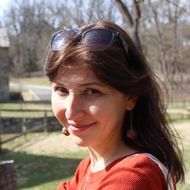- A
- A
- A
- АБB
- АБB
- АБB
- А
- А
- А
- А
- А
- НИУ ВШЭ в Санкт-Петербурге
- Санкт-Петербургская школа гуманитарных наук и искусств
- Департамент истории
- Мероприятия
- Symposium "Cold War Matters: (In)Visible Economies of Things"
-
Департамент
-
Образовательные программы
Адрес:
190068 Санкт-Петербург
Набережная канала Грибоедова, 123 лит А, кабинет 123
Тел. +7 812 644-59-11 *61417
Руководитель департамента
Департамент был основан как факультет истории в 2012 году. Основная цель департамента — систематическое развитие глобальной, сравнительной и транснациональной истории как общей рамки исторического знания и инструмента преодоления ограничений, создаваемых канонами национальной истории. Миссия департамента — развитие нового типа исторического образования в России и новых исследовательских областей российской историографии в диалоге с современной мировой историографией.
В данном разделе Вы найдете онлайн лекции от наших преподавателей!
Адрес:
190068 Санкт-Петербург
Набережная канала Грибоедова, 123 лит А, кабинет 123
Тел. +7 812 644-59-11 *61417
Руководитель департамента

Symposium "Cold War Matters: (In)Visible Economies of Things"
National Research University Higher School of Economics in St Petersburg
Laboratory for Environmental and Technological History
and
University of Jyväskylä
Symposium Cold War Matters
Cold War Matters: (In)Visible Economies of Things
While essentially an ideological conflict, the Cold War was always underpinned by physical objects. Some of these things were clear metaphors for the conflict, such as the Berlin Wall. However, less well-known objects also participated in the Cold War, uniting politics and material culture. A wide range of items were produced for the Cold War: from kitchen appliances to atomic bombs; buildings and built environments for ideologically inspired urban plans; and satellites that continue to circle the globe. Crucially, the Iron Curtain failed to prevent a transnational interplay of both military and civil items. Technologies crossed Cold War borders within exchange exhibitions, experts’ collaborations, and intelligence operations. This material traffic reveals the significance of things for Cold War matters: objects determined policies.
This interdisciplinary symposium invites papers focusing on this material side of the Cold War. Contributors may explore how well visible civil and military objects, from blue jeans and television sets, to AK-47s and U-2s, impacted Cold War societies. Uncovering technological histories of the Cold War, we seek to reveal the role of scientific-technological innovations, industrial competitions, and East-West transfers for Cold War modernity. In doing so, we expect to shed light on the Cold War biographies of both the better-known militarized objects and allegedly politically neutral things for daily life. This re-examination of the physical environment of the Cold War will, therefore, consider both visible and invisible economies of material objects.
How can we assess the role of things within the Cold War? How can we measure Cold War objects’ passiveness or agency? Which unique networks did Cold War things establish? How can we re-map the Cold War considering the material side of the conflict?
Among others, potential contributions might discuss:
- Transfers of technologies and cultural encounters across the Iron Curtain;
- Techniques of embodying things with Cold War meanings;
- Comparative / parallel biographies of objects on both sides of the Iron Curtain;
- Materiality of mass consumption, industrial production, and economic development;
- Archivation and museumification of Cold War items;
- Afterlife of Cold War objects in contemporary artistic and cultural practices.
Two keynote lectures will be given within the Symposium.
Serguei A. Oushakine (Princeton University) will deliver a talk entitled “Fighting a New Cult: Thing-Theory of Late Socialism.” The presentation will explore late Soviet attempts to conceptualize the role and importance of things under socialism. Looking at two distinctive approaches – the ideological fight for the “socialist way of life” and the “aesthetic materialism” of Soviet designers and art producers – the talk traces the emergence of an early version of ontology and aesthetics oriented towards the object.
Dick van Lente (Erasmus University, Rotterdam) will give a presentation entitled “Invisible Rays and the Material Environment in the Cold War” to explore the cultural representation of radiation during the Cold War, and the consequences radiation had on international environmental and technological policies.
Advanced PhD-students and early career scholars are invited to submit an abstract (300–500 words) and a short CV. Each presenter will be assigned a discussant selected from major experts in the field. Papers (4000–6000 words) should be circulated one week prior the event in order to ensure a fruitful discussion.
Please submit applications to the address coldwarmatters@gmail.com until May 15, 2019.
We will be able to cover reasonable travel costs and lodging of most participants. In your letter, please indicate a rough estimate of travel costs if relevant.
Organizational Committee:
Kirill Chunikhin, Elena Kochetkova, Julia Lajus, Simo Mikkonen
Confirmed Discussants:
Sari Autio-Sarasmo (Aleksanteri Institute, Helsinki)
Jari Eloranta (University of Helsinki)
Dick van Lente (Erasmus University, Rotterdam)
Julia Lajus (National Research University Higher School of Economics, St Petersburg)
Simo Mikkonen (University of Jyväskylä)
Serguei A. Oushakine (Princeton University)
Full program
- О кампусе
- Сведения об образовательной организации
- Руководство и структура
- Подразделения
- Преподаватели и сотрудники
- Попечительский совет
- Корпуса и общежития
- Закупки
- ВШЭ для студентов с ограниченными возможностями здоровья и инвалидностью
- Версия для слабовидящих
- Единая платежная страница
-
http://www.minobrnauki.gov.ru/
Министерство науки и высшего образования РФ
-
https://edu.gov.ru/
Министерство просвещения РФ
-
http://www.edu.ru
Федеральный портал «Российское образование»
-
https://elearning.hse.ru/mooc
Массовые открытые онлайн-курсы
- © НИУ ВШЭ 1993–2025 Адреса и контакты Условия использования материалов Политика конфиденциальности Карта сайта
- Редактору

